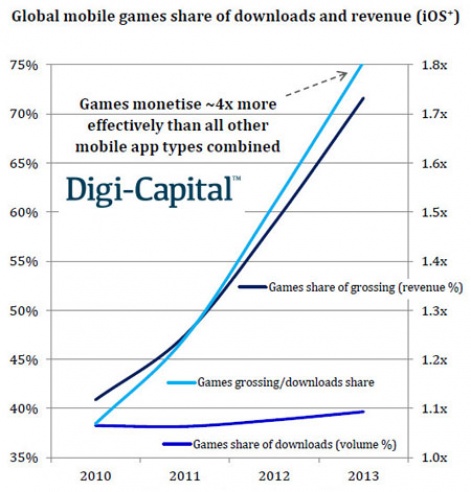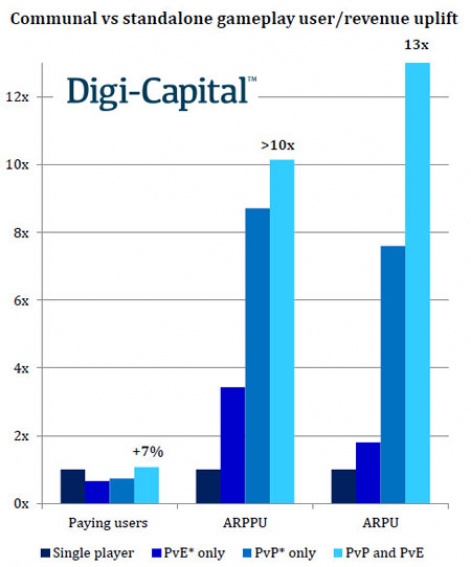Finding out these local anomalies is the sort of thing that investors like to do, which brings us to Digi-Capital's Global Games Investment Review report for Q2 2013.
It looks at the overall growth of the games industry, breaking it down into its component parts to understand exactly what's going on.
For example, while considering the mobile internet - a sector it predicts could be worth $11 trillion by 2025 - it points to the disproportional impact of games.
Big slice of a big pie
While games account for 43 percent of app usage on phones and 67 percent of use on tablets, this proportion is 72 percent when it comes to total app revenue.
Indeed, mobile games monetise 4 time betters than all other app categories combined.

This revenue growth has particularly been driven by free-to-play games that employ Player Versus Player gameplay.
East looking west
The companies currently taking advantage of this growth are based in Japan, South Korea and China.
Digi-Capital points to strong domestic markets, which can generate up to 20 million peak concurrent users, and firms operating with a more than 50 percent profit margin.
It's this rush of revenue that's handing such companies the potential to invest significant amount of money in the European and North American markets.

As Digi-Capital points out, 8 of the 10 largest M&A deals in 2012 were made by Chinese, Japanese or South Korean companies.
You can check out the executive summary of its report here, or get the full 150 pages for $999.

















